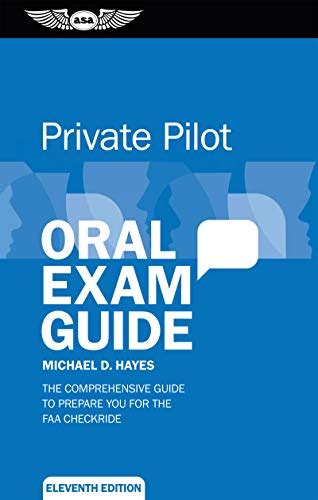Becoming a pilot is a highly competitive yet rewarding career that demands exceptional skills, knowledge, and a solid understanding of aviation principles. To secure a coveted spot in aviation schools or airlines, aspiring pilots must excel in pilot assessment tests, which play a crucial role in evaluating their capabilities.

The Importance of Pilot Assessment Tests
Pilot assessment tests are designed to assess various aspects of an applicant’s suitability for a pilot career, including their:
- Cognitive abilities
- Psychomotor skills
- Emotional stability
- Stress tolerance
- Teamwork and communication skills
Airlines and flight schools rely on these tests to identify candidates who possess the necessary attributes to operate aircraft safely and effectively. Passing these assessments is paramount for those seeking to pursue a career in aviation.
Understanding the Pilot Assessment Process
The pilot assessment process typically consists of multiple stages, including:
1. Aptitude Tests:
These tests evaluate cognitive abilities such as spatial reasoning, problem-solving, and memory.
2. Psychological Assessment:
Candidates may undergo personality tests, aptitude assessments, and interviews to gauge their emotional stability, stress tolerance, and teamwork skills.
3. Flight Simulator Assessment:
Aspiring pilots demonstrate their psychomotor skills by controlling simulated aircraft in a flight simulator, executing various maneuvers and tasks.
4. Medical Examination:
Candidates must pass a comprehensive medical examination to ensure they possess the physical and mental health required for flying.
Preparing for Pilot Assessment Tests
Thorough preparation is essential for success in pilot assessment tests. Here are some strategies to enhance your performance:
1. Study Hard:
Review aviation principles, human factors, and meteorology. Practice aptitude tests and familiarize yourself with flight simulator procedures.
2. Practice Flight Simulation:
Log hours in a flight simulator to hone your psychomotor skills and develop confidence in controlling aircraft.
3. Seek Professional Guidance:
Consider working with an experienced flight instructor or pilot assessment specialist to gain personalized guidance and improve your chances of success.
4. Manage Stress:
Pilot assessment tests can be stressful. Practice relaxation techniques and develop strategies to cope with pressure.
Common Pain Points and Motivations
Pain Points:
- Competitive nature of pilot assessment tests
- High cost of training and assessments
- Uncertainty and financial risks associated with pursuing a pilot career
Motivations:
- Passion for flying
- Desire to operate aircraft
- Career stability and high earning potential
- Opportunity to travel the world
Why Pilot Assessment Prep Matters
Preparing thoroughly for pilot assessment tests is crucial for several reasons:
- Ensures you meet the minimum eligibility criteria
- Gives you a competitive edge and increases your chances of selection
- Helps you develop a deep understanding of aviation principles
- Improves your psychomotor skills and confidence in the cockpit
- Reduces stress and anxiety during the assessment process
Benefits of Pilot Assessment Prep
Investing time and effort in pilot assessment prep offers numerous benefits, including:
- Increased chances of becoming a commercial pilot
- Confidence and readiness for the challenges of flight training
- Enhanced safety consciousness and situational awareness
- Improved aviation knowledge and proficiency
- Career advancement opportunities within the aviation industry
Table 1: Common Pilot Aptitude Tests
| Test Name | Description |
|---|---|
| Spatial Reasoning Test | Assesses spatial perception, orientation, and the ability to manipulate mental images. |
| Problem-Solving Test | Evaluates problem-solving capabilities, critical thinking, and logical reasoning. |
| Memory Test | Measures the candidate’s ability to recall and retain information, including numbers, shapes, and sequences. |
Table 2: Psychomotor Skills Evaluated in Flight Simulator Assessments
| Skill | Description |
|---|---|
| Aircraft Control | Demonstrates proficiency in controlling the aircraft in various flight scenarios. |
| Situational Awareness | Assesses the candidate’s ability to process information and make decisions in a simulated cockpit environment. |
| Instrument Flying | Evaluates the candidate’s ability to fly the aircraft using only instruments. |
Table 3: Key Aspects of Psychological Assessment
| Aspect | Description |
|---|---|
| Personality Traits | Examines the candidate’s personality characteristics, such as assertiveness, emotional stability, and stress tolerance. |
| Aptitude and Potential | Assesses the candidate’s potential for success in a pilot role based on their cognitive abilities and aptitude. |
| Communication Skills | Evaluates the candidate’s ability to communicate effectively in a cockpit environment and with air traffic control. |
Table 4: Medical Examination Requirements for Pilots
| Examination | Purpose |
|---|---|
| Vision Test | Assesses the candidate’s visual acuity, color vision, and field of vision. |
| Hearing Test | Evaluates the candidate’s hearing capabilities, including threshold and frequency range. |
| Cardiovascular Examination | Examines the candidate’s heart health, including blood pressure, electrocardiogram, and stress test. |
Conclusion
Pilot assessment tests are a crucial component of the pilot selection process. By understanding the importance, process, and benefits of pilot assessment prep, aspiring pilots can increase their chances of success in these assessments. Through meticulous preparation, they can demonstrate their passion for aviation, proficiency in flying, and possess the qualities necessary to become safe and competent pilots.
